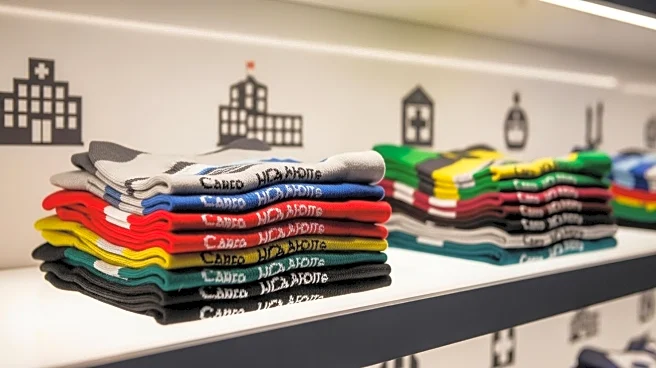What's Happening?
Sock manufacturer Arif Patel and his criminal gang have been sentenced for orchestrating one of the UK's largest carousel tax frauds, involving £97m in false VAT repayment claims. Patel's operation included importing counterfeit clothes worth £50m and using the proceeds to build a property empire across London, Preston, and overseas. The fraud involved creating fake business transactions to claim VAT repayments, a method known as carousel fraud. Patel and his co-accused, Mohamed Jaffar Ali, were found guilty of fraud and money laundering after a 14-week trial. Patel's assets, including properties and a Ferrari, will be sold to fund UK public services.
Why It's Important?
The sentencing of Arif Patel highlights the significant impact of financial crimes on public resources. The confiscation of Patel's assets, valued at over £90m, will be redirected to support UK public services, demonstrating the government's commitment to recovering funds lost to criminal activities. This case underscores the importance of vigilance and collaboration between law enforcement agencies, such as HM Revenue and Customs and Lancashire Police, in tackling complex fraud schemes. The successful prosecution serves as a deterrent to similar fraudulent activities, emphasizing the legal consequences of engaging in tax evasion and money laundering.
What's Next?
The sale of Patel's restrained assets is expected to proceed, with the funds being allocated to public services. The case may prompt further investigations into similar fraud schemes, as authorities continue to crack down on financial crimes. The legal proceedings against Patel and his associates may influence future policy decisions regarding tax fraud prevention and enforcement. Additionally, the case could lead to increased scrutiny of businesses involved in international trade, particularly those with complex financial transactions.










